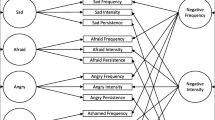Summary
A brief interview schedule for assessing social functioning is described which is particularly suited for assessing non-psychotic patients. Interrater reliability by the intraclass correlation coefficient for each part of the schedule ranged from 0.45 to 0.81 on audiotape ratings and from 0.50 to 0.80 with independent interviews. A version of the schedule for informants gave similar levels of agreement. Ratings from patients and informants taken independently revealed highly significant agreement on all sections of the schedule (p<0.01). The schedule also clearly discriminated between patients with personality disorders (with expected problems in social functioning), those with other psychiatric diagnoses, and non-patients. Factor analysis applied to the ratings of 106 neurotic outpatients revealed four factors, domestic and leisure problems, reduced performance, domestic worries and occupational difficulties. The scale is a reliable and valid instrument for recording social functioning and takes only a short time to complete.
Similar content being viewed by others
References
Aitken, R. C. B.: Measurement of feelings using visual analogue scales. Proc. R. Soc. Med.62, 989–993 (1969)
Bartko, J.J.: The intraclass correlation coefficient as a measure of reliability. Psychol. Rep.19, 3–11 (1966)
Bartko, J. J.: Corrective note to: ‘The intraclass correlation coefficient as a measure of reliability’. Psychol. Rep.34, 418 (1974)
Bond, A., Lader, M.: The use of analogue scales in rating subjective feelings. Br. J. Med. Psychol.47, 211–218 (1974)
Cicchetti, D.D., Aivano, S.L., Vitale, J.: A computer program for assessing the reliability and systematic bias of individual measurements. Educ. Psychol. Meas.36, 761–765 (1976)
Ellsworth, R. B.: Consumer feedback in measuring the effectiveness of mental health programs. In: Handbook of Evaluation Research, Vol. 2, (eds. P. Guttenlay, M. Struening). London: Sage Publications 1975
Ellsworth, R. B., Foster, L., Childers, B., Arthur, G., Kroeker, P.: Hospital and community adjustment as perceived by psychiatric patients, their families, and staff. J. Consult. Clin. Psychol.32, 1–41 (1968)
Feffer, M., Phillips, L.: Social attainment and performance under stress. J. Pers.22, 284–297 (1953)
Folstein, M. F., Luria, R.: Reliability, validity and clinical application of the visual analogue mood scale. Psychol. Med.3, 479–486 (1973)
Frank, J. D.: Persuasion and healing. Baltimore: John Hopkins Press 1961
Freeman, H. E., Simmons, G. G.: The mental patient comes home. New York: John Wiley 1963
Gurland, B.J., Yorkston, N.J., Stone, A. R., Frank, J. D., Fleiss, J. L.: The structured and scaled interview to assess maladjustment (SSIAM) 1. Description, rationale and development. Arch. Gen. Psychiatry27, 259–264 (1972)
Hewett, S.: Towards a measure of social performance? (unpublished) (1975)
Hogarty, G.E., Katz, M.M.: Norms of adjustment and social behaviour. Arch. Gen. Psychiatry25, 470–480 (1971)
Katz, M.M., Lyerly, S.B.: Methods for measuring adjustment and social behaviour in the community: I. Rationale, description, discriminative validity and scale development. Psychol. Rep.13, 503–535 (1963)
Malan, D.H., Bacal, H.A., Heath, E.S., Balfour, F.H.G.: A study of psychodynamic changes in untreated neurotic patients. Br. J. Psychiatry114, 525–551 (1968)
Offer, D., Sabshin, M.: Normality. New York, London: Basic Books 1966
Paul, G. L.: Strategy of outcome research in psychotherapy. J. Consult. Psychol.31, 109–117 (1967)
Paykel, E.S., Weissman, M.M., Prusoff, B.A., Tonks, C.M.: Dimensions of social adjustment in depressed women. J. Nerv. Ment. Dis.152, 158–172 (1971)
Phillips, L., Zigler, E.: Social competence: The action-thought parameter and vicariousness in normal and pathological behaviours. J. Abnorm. Soc. Psychol.63, 137–146 (1961)
Remington, M., Tyrer, P. J., Newson-Smith, J., Cicchetti, D. V.: Comparative reliability of categorical and analogue rating scales in the assessment of psychiatric symptomatology. (In press 1979)
Ruesch, J., Brodsky, C. M.: The concept of social disability. Arch. Gen. Psychiatry19, 394–403 (1968)
Spitzer, R.L., Endicott, J., Fleiss, J.L., Cohen, J.: The psychiatric status schedule. A technique for evaluating psychopathology and impairment in role functioning. Arch. Gen. Psychiatry23, 41–55 (1970)
Tyrer, P., Remington, M.: A controlled comparison of day hospital and out-patient care for neurotic disorders. (In press 1979)
Weissman, M.M., Klerman, G.L., Paykel, E.S., Prusoff, B., Hanson, B.: Treatment effects on the social adjustment of depressed patients. Arch. Gen. Psychiatry30, 771–778 (1974)
Wing, J.K., Cooper, J.E., Sartorius, N.: The measurement and classification of psychiatric symptoms. London: Cambridge University Press 1974
Zealley, A. K., Aitken, R. C. B.: Measurement of mood. Proc. R. Soc. Med.62, 993–996 (1969)
Author information
Authors and Affiliations
Rights and permissions
About this article
Cite this article
Remington, M., Tyrer, P. The social functioning schedule — A brief semi-structured interview. Soc Psychiatry 14, 151–157 (1979). https://doi.org/10.1007/BF00582182
Accepted:
Issue Date:
DOI: https://doi.org/10.1007/BF00582182




